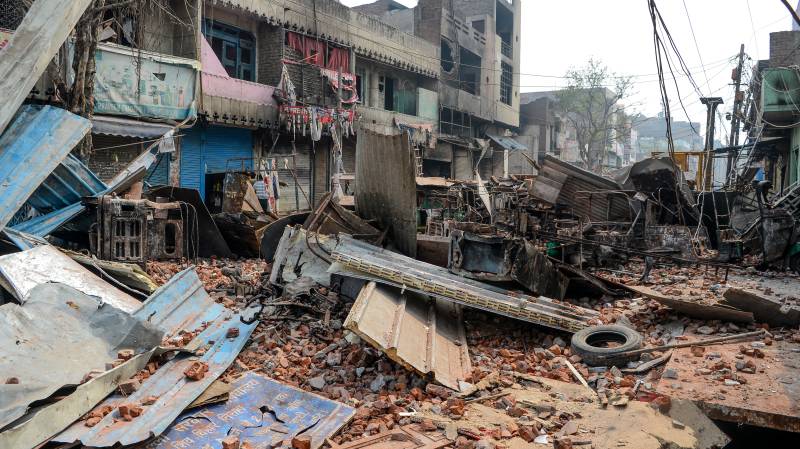India's Hindu nationalist trajectory under Modi

Stay tuned with 24 News HD Android App

At least 22 people have died in India's capital New Delhi after some of the worst sectarian violence in decades, sparked by clashes over Indian Prime Minister Narendra Modi's new citizenship law.
The legislation has stoked fears that Modi wants to remould his country as a Hindu nation, undermining the secular and pluralist roots of the world's biggest democracy.
AFP looks at this and other steps since Modi swept to a second term in May that have struck fear among India's 200 million Muslims, other minorities and some in the international community.
Kashmir's autonomy
Until October 31, Jammu and Kashmir was the only Muslim-majority state in India, and its special status and partial autonomy in the Indian constitution has long rankled with Hindu nationalists.
On August 5, parliament moved to strip Kashmir -- where an armed rebellion against Indian rule has raged for decades -- of this status and split it into two territories directly ruled from New Delhi.
Modi said this was to foster economic development and tackle corruption but many Kashmiris believe the real reason was to dilute the region's identity by allowing Hindus to migrate there.
Citizenship list
A citizens' register in Assam state finalised last year left off 1.9 million people, many of them Muslims, who now face possible statelessness, detention camps and even deportation.
Modi's right-hand man Amit Shah has said he intends to replicate the "National Register of Citizens" nationwide with the aim of removing all "infiltrators" from India by 2024.
Muslims, who in Modi's first term saw many Islamic-sounding cities renamed and the role of Muslims in India's past expunged from some history textbooks, worry that Shah has them in mind.
Temple tantrums
India's top court ruled in November that a Hindu temple could be built in Ayodhya on the site where a mosque was demolished by Hindu zealots in 1992, in a major victory for Modi's supporters.
Preparations have begun for the construction of the temple, fulfilling a campaign pledge first made by Modi's Bharatiya Janata Party (BJP) in the 1980s.
For critics the ruling served to legitimise the mosque's destruction -- and to give free rein to possible further acts of vandalism and violence.
Non-Muslim immigrants
The latest move is a law making it easier for millions of illegal immigrants from three neighbouring countries to get citizenship -- but only Hindus, Sikhs, Jains, Buddhists or Christians.
Modi said the law, passed by parliament in December, does not cover Muslims because they do not face persecution in the three Islamic-majority countries concerned -- Bangladesh, Afghanistan and Pakistan.
The legislation sparked weeks of demonstrations and clashes that in December left more than 25 people dead. Another 22 people were killed during sectarian violence in Delhi this week.
Protests have been particularly strong in northeast India where locals have a different concern: that it will grant citizenship to Bangladeshi immigrants, many of whom are Hindus.
What's next
The UN human rights office has said it was concerned the citizenship law "would appear to undermine" India's constitutional commitment to equality before the law.
The US State Department urged "India to protect the rights of its religious minorities in keeping with India's constitution and democratic values".
But more may be in the pipeline.
On the BJP's wishlist is a uniform civil code, doing away with various other laws for religious minorities in areas such as marriage, family and death.
